The top three Dota 2 teams in the world emerge in a dramatic penultimate day at The International
The Sun Strike heard around the world.
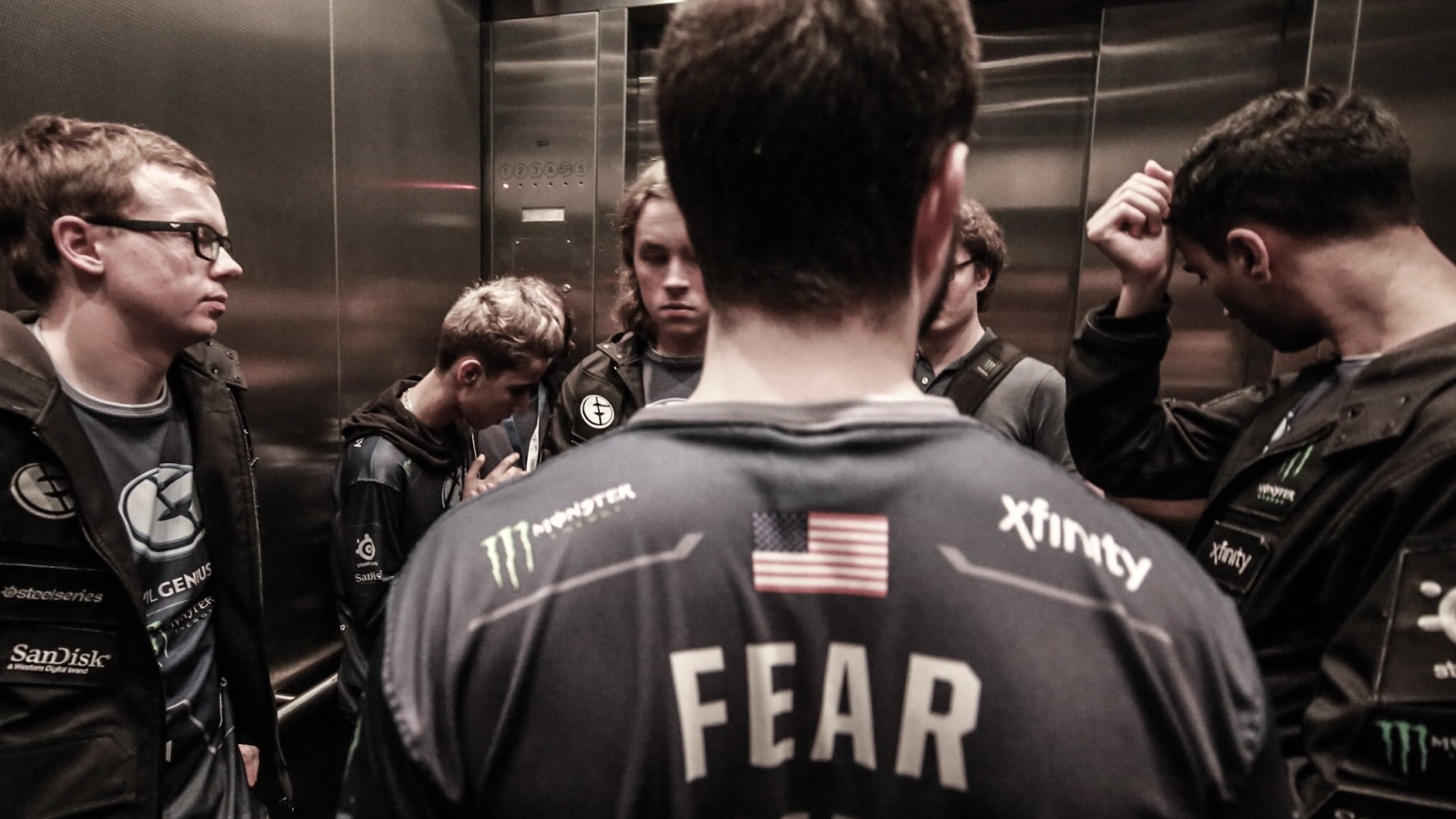
Get up to speed on the players, metagame, and results going into the International with our extensive guide to the tournament and teams. You can find all of our ongoing coverage of the tournament on this page. The fastest place to find VODs for each game is on Reddit, but you can also find them in the game client. Check out the current bracket standings on the official site.
Grand finals day is here. Starting at 10:00 PDT (18:00 BST/19:00 CEST), the three best Dota 2 teams in the world will go to war for the top spot. This means everything to these players, regardless of the $9m first place prize. Whoever wins, Dota history is going to be made today. Will young talent emerge from China to sweep the title away from established teams? Will the defending champions recover from a shaky year to become the first team to win two back-to-back Internationals? Or will a team that everybody overlooked for months prove their doubters wrong on the one stage that really matters? It’s time to find out.
Header image via the official Dota 2 Twitter account. Spoilers below.
IF YOU WATCH ONE MATCH…
...watch DC vs. Fnatic, particularly game two.
THE MATCHES
Lower bracket: MVP Phoenix vs. Fnatic
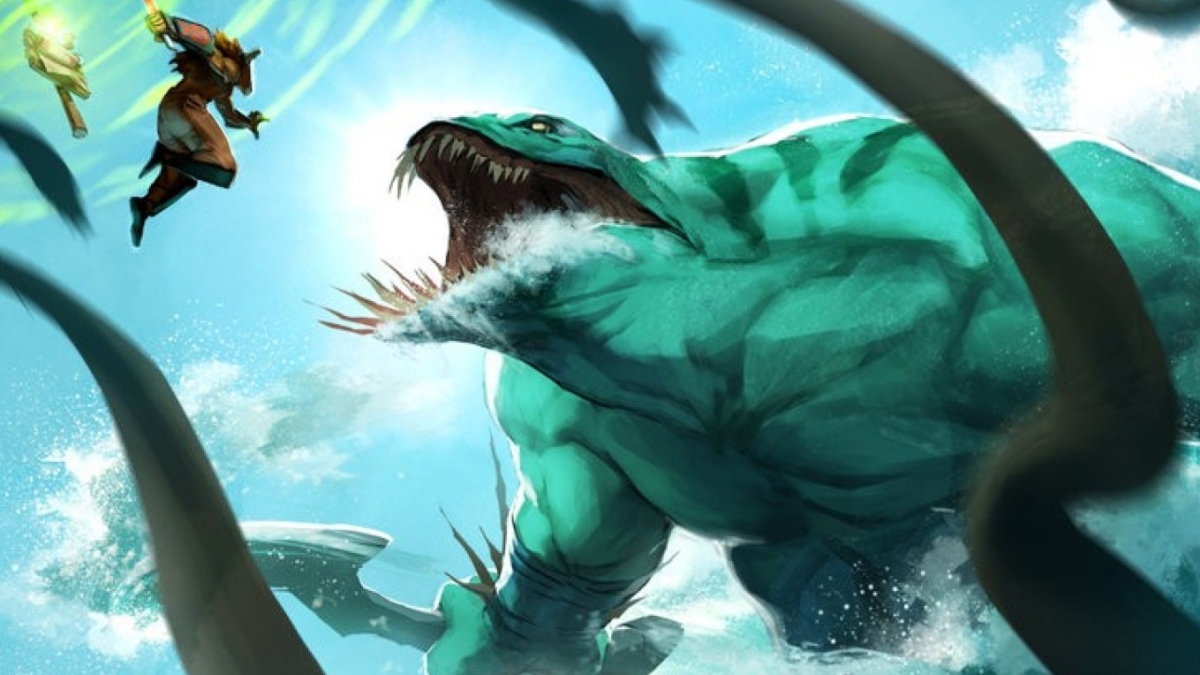
Wings cracked open the meta today, proving that anything can work when the current top-tier aren’t in the pool. Their teamfight-oriented push strategy in game one against EG is old-school Dota, and it seemed to take EG completely off guard. Although certain heroes will remain crucial going into the final day—particularly Shadow Demon and Mirana—there’s still vast strategic space left to explore.
MVP Phoenix have had another fantastic year at the International, upsetting champions and proving that teams can still bring their own style of Dota 2 and win at the highest level. Nonetheless, that limited playstyle—as entertaining as MVP’s all-in aggression can be—holds them back from the top spot. Wings exploited it yesterday, and Fnatic exploited it today.
MVP Phoenix went all-in on aggression in the first draft, as you’d expect, but Fnatic outfought them in the early game. Fnatic.Ohaiyo on Sand King had a phenomenal early game with little opposition in lane, and a series of fights went Fnatic’s way as MVP struggled to get key fighting items like Mekansm online. When they did, MVP managed to claw back some space on the map: but not enough to overcome the huge gold lead that Fnatic had established.
With the help of 343’s Bounty Hunter, Fnatic just kept building that lead. When DJ’s Crystal Maiden had greater net worth than QO’s Slardar, MVP must have known that they were in trouble. It proved so: they fought hard but so did Fnatic, and Dota is simply a numbers game sometimes. Here, the numbers went Fnatic’s way.
MVP Phoenix withdrew from their house style in the second game, drafting on-meta picks like Mirana and Faceless Void. They got first blood, too, but had their momentum curtailed by an early courier snipe from Fnatic’s Riki that a MVP Phoenix should have seen coming. A double kill for Fnatic.MidOne’s safelane Juggernaut under MVP’s tower demonstrated just how hard Fnatic were winning these lanes, and Oracle—a hero that MVP seem to overvalue both in picks and bans—couldn’t provide enough of a defensive boost to keep the Koreans in this match.
Keep up to date with the most important stories and the best deals, as picked by the PC Gamer team.
Even so, a great teamfight performance at the 20 minute mark kept MVP in the game as they were given the opportunity to go HAM and demonstrate the kind of form that knocked OG out of the upper bracket. MVP struggled to turn these wins into objectives, but they did extend the game. MVP picked up Roshan later in the game but were immediately punished for it, giving Fnatic the opportunity they needed to start sieging. At this point, MVP looked like they were crumbling: a run of misplays and deaths after buyback played hard into Fnatic’s hands. Mushi’s midlane Medusa became a battering ram that secured Fnatic a place in the top four.
Upper bracket: Wings vs. Evil Geniuses
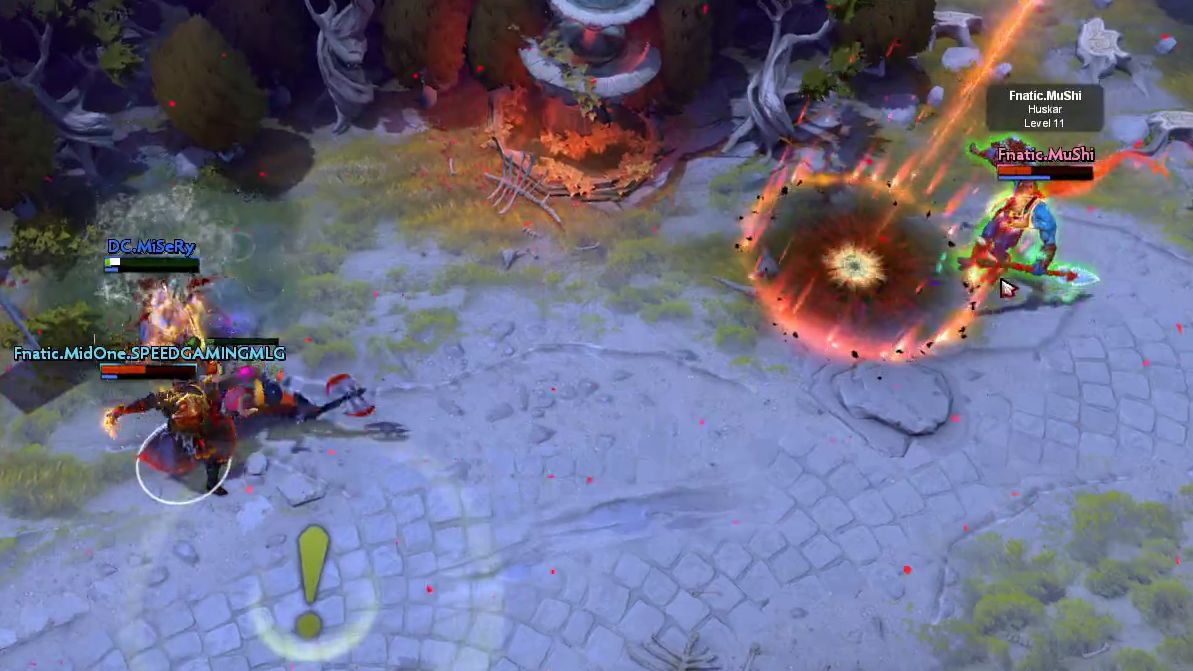
The standard of play at the International is now so high that virtuoso outplays are actually becoming less common: players are simply too good to get styled on. Yesterday, however, DC.w33 demonstrated that it can still be done. That mid-fight Sun Strike on Mushi’s Huskar is one of the plays of the tournament, let alone the day—and the presence of mind required to Cold Snap Elder Titan before the Echo Stomp can stop him is incredible.
This was a fascinating series. In a flashback to last year, a seemingly unstoppable EG came up against a hot young Chinese team and stumbled. Last year that Chinese team was CDEC: this year, it’s Wings. The difference, however, is Wings’ startling versatility and their creativity in the draft. EG’s master strategist ppd seemed utterly outmaneuvered by Wings’ willingness to reach outside the meta.
Wings entered the booth with a plan—a really old plan. Building a teamfight lineup around Tidehunter and the main event’s first Enigma is old-school Dota 2, with pushing power supported by Razor, Rubick and Timbersaw. This was experimental in terms of this event but relatively traditional in a broader sense. EG’s draft suggested experimentation of a different sort: Universe not on an initiator but on Weaver; SumaiL on a mid Sand King; Zai on Io with none of the traditional Io partners. Fear on Anti-Mage suggested the EG wanted a way to split-push, but this seemed like a reactive rather than active choice.
A confident start for EG built up good momentum, with early levels on SumaiL providing good pick-off power when coupled with Zai. Yet levels and farm on Wings’ lineup translated directly into tankiness, and as time went on EG’s ability to teamfight became less and less effective. Wings proved to be capable gankers too, willing to commit ultimates to score vital, well-coordinated kills on Fear’s Anti-Mage. This was crucial because Fear represented EG’s way back into the game, able to cut off creep waves and sap the momentum from Wing’s lethal pushing power.
This worked for a time but it only took one mistake to collapse EG’s fragile resistance. Seemingly underestimating the Tidehunter’s Refresher Orb, EG were caught by a fantastic Black Hole in their base followed by a second Ravage that effectively ended the game.

Wings.iceice’s Elder Titan in game two against EG was fantastic, delivering a series of clutch Echo Stomps that denied his opponents vital momentum. His team as a whole deserves credit, too—particularly captain Innocence. Comfortably outdrafting EG two games in a row is no mean feat and bodes very well for Wings’ prospects on the final day.
Wings pivoted to the meta in the second game, picking up Elder Titan, Beastmaster, Shadow Demon, Medusa, Huskar—a rogue’s gallery of top picks, demonstrating what can happen when your opponent doesn’t know what to expect. A late Alchemist pick by EG suggested that they planned on building an early lead and closing the game fast, and early kills from EG’s aggressive trilane got them off to a good start.
Wings’ vision game was on point, however, with wards ensuring that Universe’s Night Stalker couldn’t establish the kind of global threat that he needs to in order to be effective. Wings.iceice was the star, here, proving once again why Elder Titan is such a threat against aggressive. Every Echo Stomp and Earth Splitter was on point, or so it seemed.
SumaiL’s Alchemist couldn’t establish the kind of lead that the hero specialises in as Wings evened out their early kill deficit. Wings’ teamfight coordination was phenomenal in the midgame, flirting with the edge of disaster but always coming out on top with clutch saves from Innocence’s Shadow Demon ensuring that EG couldn’t find the kills they needed. Comfortably sieging EG’s highground at the 30 minute mark, Wings secured a 2-0 victory over the defending champions and a place in the grand final.
Lower bracket: DC vs. Fnatic
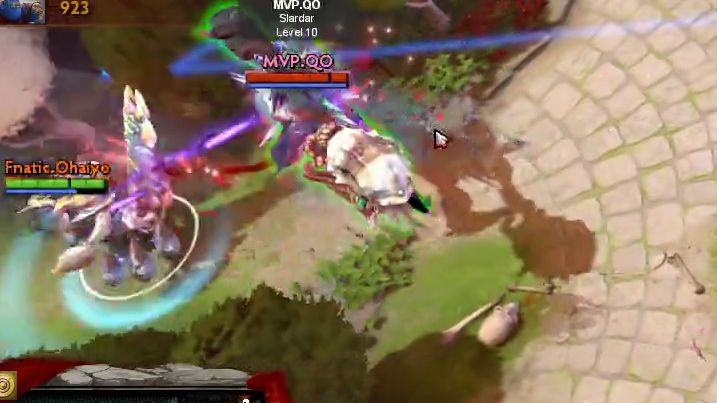
Fnatic.Ohaiyo’s Sand King runs into MVP Phoenix at the edge of the Radiant jungle, disrupting their smoke attempt: but fast blink reactions gets Ohaiyo to safety. Then, even faster Force Staff reactions propel him away from QO’s attempted follow-up.
The lower bracket underdog melee reached its climax as DC and Fnatic fought for the right to face EG for that final spot in the grand final. Fnatic got creative in the first draft, drawing the main event’s first Legion Commander—but DC outplayed them with a Slardar pick (typically an offlaner or carry) that ended up being run as a support with a Dark Seer. This fantastic strategic decision put huge pressure on Fnatic’s safelane Phantom Lancer and contributed to a quick lead for DC.
A run of clutch Mirana arrows got Fnatic back into the game, chipping away at DC’s kill advantage. Then, dodging DC’s aggression allowed Fnatic to pull back a bit of control over the game and it became a very close contest. They couldn’t dodge the fights forever, however, and DC’s draft—which included Ursa, Slark and Keeper of the Light—had huge potential in both skirmishes and teamfights. Smart itemisation proved vital here too, with DC building items to counter the single-target lockdown that Fnatic relied on to control snowballing heroes like Ursa.
DC’s deadly frontline received fantastic support from Saksa and a series of clutch Vacuum-Wall of Replica combos from Moo’s Dark Seer compounded DC’s massive gold and experience lead going into the lategame. Fnatic found themselves on the receiving end of the same sort of treatment they gave MVP: they fought back hard, but were simply too far behind to close out this first game.
This was Fnatic’s first loss on the main stage, and with their aura of invulnerability shattered the second game presented a stiff challenge. The teams once again traded top meta picks, with Fnatic getting the deadly combination of Huskar and Io through the draft. DC responded with the main event’s first Chaos Knight, a lesser-seen carry who is nonetheless considered a solid answer to Huskar.
Early aggression from DC scored first blood on Io, but a misplay led to a death on Resolut1on’s Chaos Knight too. The laning phase went much better for Fnatic generally, but they gave up some of this momentum with a wasted rotation from Faceless Void and their mid Ember Spirit. Nonetheless, this was close for a long time.
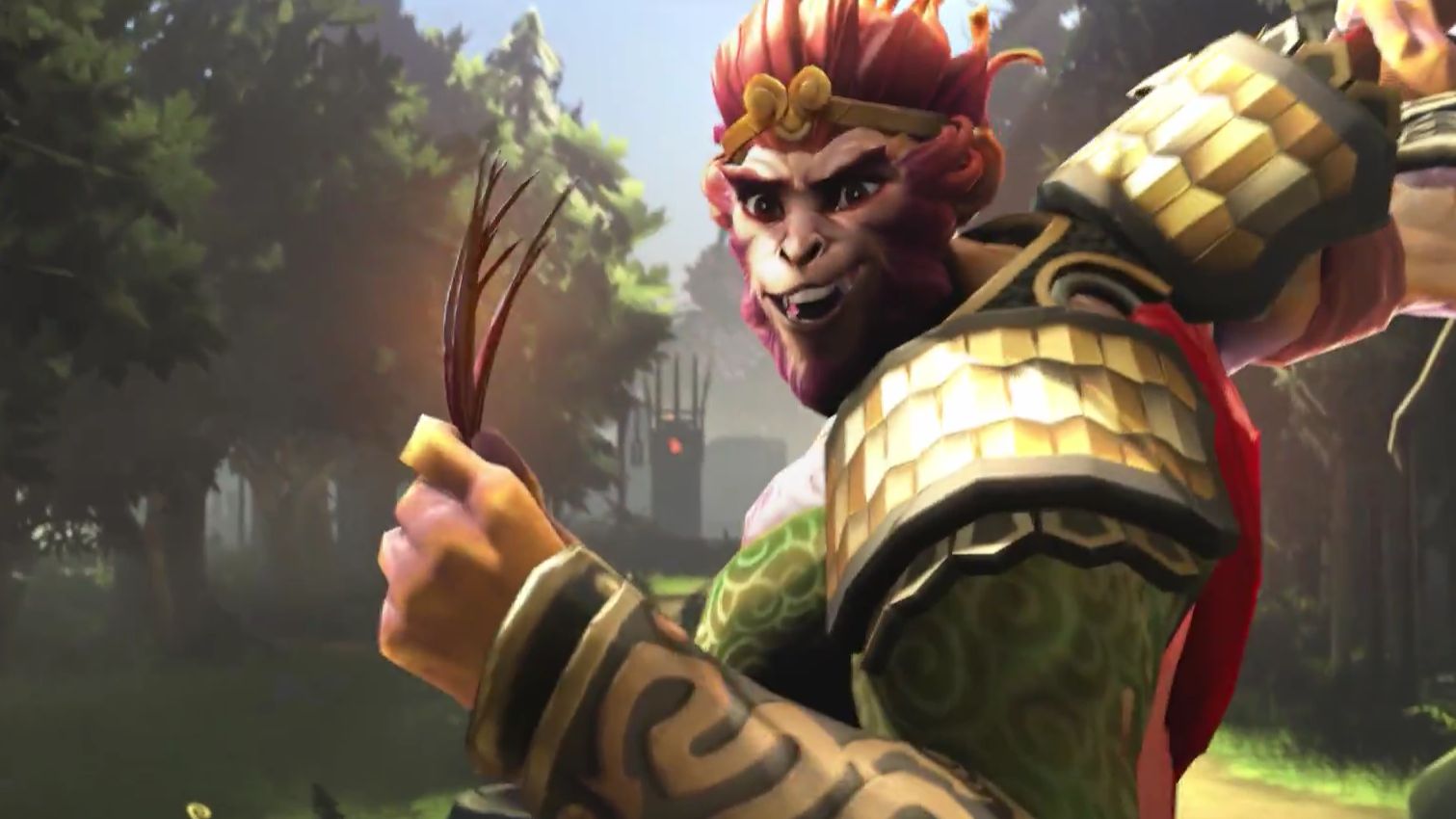
As game three ends, Taiko drummers and martial artists take over the stage for the reveal of Monkey King and the New Journey update. He sounds a lot like McCree from Overwatch, for some reason.
Around the 17 minute mark, however, the DC teamfight machine came online and gave them the confidence to keep taking advantageous fights. The decision to give midlaner w33 Invoker paid off as he delivered one of the most impressive performances I’ve ever seen on this high skill cap hero. Star power doesn’t always shine when every player is this good, but w33 outplayed Fnatic comfortably in a number of crucial midgame teamfights.
He even repeated this legendary trick from the Frankfurt Major, using Invoker’s Forge Spirit summons to detect an incoming smoke attack from Fnatic. Committing their Chronosphere to catch w33 was the best move Fnatic could have made at this point, but it was a desperation play that DC were able to take advantage of. Buying back the Invoker, DC punished Fnatic and rolled down mid to take a lane of barracks.
From this point the combination of Forge Spirits, Chaos Knight illusions, Shadow Demon illusions, and Beastmaster pets gave DC lots of slow-siege power. It was their teamfight prowess that gave them the midgame, but playing the meta paid off late. Fnatic were forced to try to take the fight to DC, but couldn’t take enough in the trade to stop DC from pushing. Offlaner Moo died while taking down Fnatic’s final barracks, and simply leaned back in his chair with his hands behind his head until he respawned. He knew they’d won: there was no coming back from mega creeps when Fnatic was this far behind. And he was right. Surging in to deliver the killing blow, Digital Chaos—this team of misfits, rejects and relative unknowns—won a place in the top three at the International.
Joining in 2011, Chris made his start with PC Gamer turning beautiful trees into magazines, first as a writer and later as deputy editor. Once PCG's reluctant MMO champion , his discovery of Dota 2 in 2012 led him to much darker, stranger places. In 2015, Chris became the editor of PC Gamer Pro, overseeing our online coverage of competitive gaming and esports. He left in 2017, and can be now found making games and recording the Crate & Crowbar podcast.


